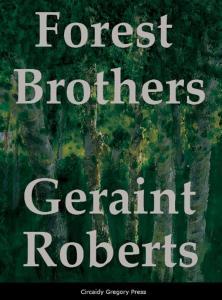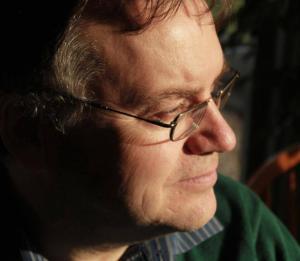The year is 1944. During the last half-decade, Estonia has been ravaged by the Soviets and the Nazis in almost equal measure. 10,000 people have been deported to a likely death in Siberia by the Soviets and another 10,000 have been killed in Nazi concentration camps. Now the Nazis are fleeing and the Soviets are returning. During World War II, Estonia was, as during its War of Independence, the battleground for these two rival powers – to the west, the Germans, and to the east, the Soviets.

That earlier War of Independence concluded in Estonia’s favour. Britain, having cast itself as protector-in-chief of the Baltic, had, along with White Russians, Latvians, Finns and others, provided much needed support to the Estonians, enabling them to forge 22 years of self-government, if not always democratic government.
It is in Geraint Roberts’ new book, “Forest Brothers”, that this British link is thrust to the fore – it is through British eyes (or, more specifically, Welsh ones) that the story is told. The central protagonist, Huw Williams, scratching out a living as a docker in Wales during the bombing of World War II, finds his past catches up with him – a visit from “a man from the government” reminds him of how he absconded from the Royal Navy in 1918 while serving in Estonia and recruits him for a special job. Williams, speaking good Estonian – “the word is ‘metsavennad’”, he corrects – and knowing the country, semi-reluctantly goes along with the scheme and finds himself kayaking treacherously towards the Estonian coast on a covert mission. He links up with the forest brothers, a band of partisan resistance fighters, and his dangerous journey through a re-remembered Estonia begins to unfold.
The author skilfully runs two stories in parallel, that of Huw and his present day predicament and that of his original introduction to Estonia over twenty years prior, helpfully printed in italic. For the Estonian dialogue, Roberts drops the definite articles (“the” and “a”) as an Estonian, of course, doesn’t use them. “You fight in Russian army now?” asks one, for example. “I thought that an idea would be to drop the definite articles, in order to emphasise the difference between English and Estonian speech. Some people really like it and some people really hate it – it’s rather a marmite issue,” Roberts says. Some people, Estonians perhaps, might find this technique jarring, but, speaking personally, I found it lent a rather realistic accent to the speech of the Estonian characters.

Roberts’ descriptions of Estonia are spot on and pleasingly match the actualité. This is unsurprising, as he’s visited the country many times and his wife is Estonian. Roberts admits he isn’t a historian but the level of realism in the book is impressive. But what I found most striking about “Forest Brothers” was its characterisation – Roberts manages to bring the characters to life without losing the taciturn and reserved nature of the average Estonian, which is no mean feat. It is the credibility that the main characters possess, especially the Estonians, that is the real strength of the novel. “Forest Brothers” is not only a compelling story of human survival, but an accurate historical narrative depicting the conditions, missions and role of the forest brothers themselves.
“Forest Brothers” is now in its second edition – impressive, considering its niche appeal – and Roberts has a prequel partially completed. It is available via Circaidy Gregory Press, priced at £7.49 + P&P and as an eBook via Amazon.co.uk.

